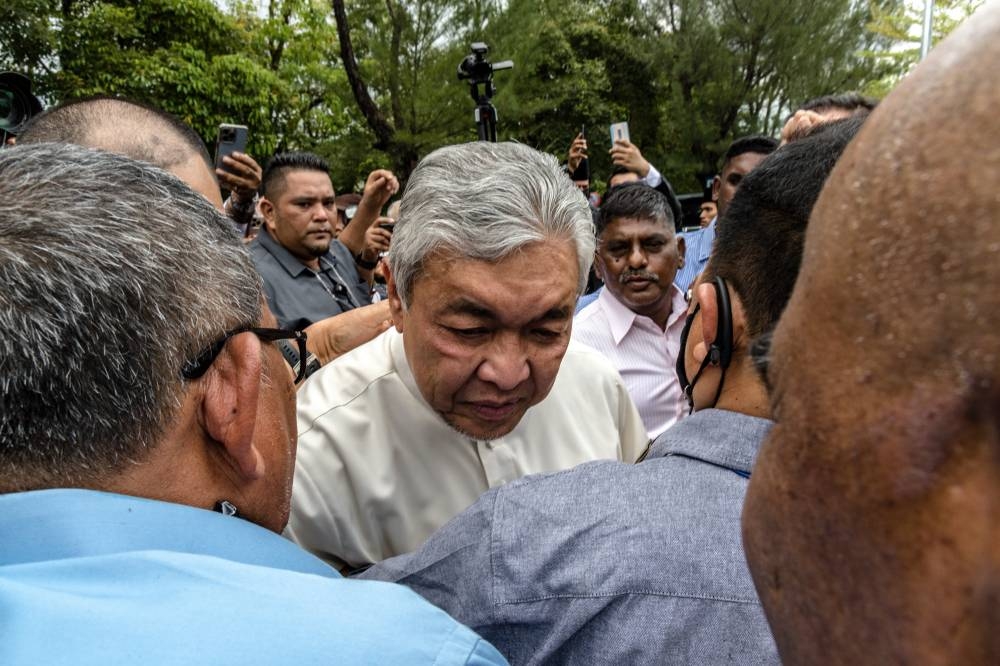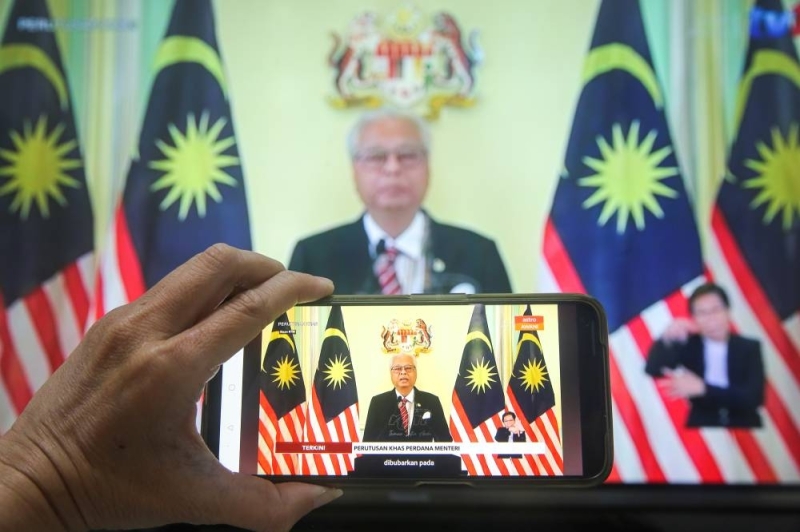KUALA LUMPUR, Oct 10 — Prime Minister Datuk Seri Ismail Sabri Yaakob has today announced the dissolution of the Parliament, following weeks of intense speculation and trepidation over the 15th general election (GE15) being held during the flood season.
It is the discretion of the sitting prime minister and his Cabinet to advise the Yang di-Pertuan Agong to dissolve the Parliament, with the session previously scheduled to automatically dissolve by July 16, 2023, since the first meeting of the current session was held on July 16, 2018.
With the dissolution, a general election must be held within 60 days from today.
The Election Commission (EC) is now expected to meet within the week to announce a date for Polling Day.
With a polling day finalised, the EC would also announce two other dates for Nomination and Early Polling Day.
Rumours circulating on social media for the past few days have claimed Nomination Day would be held on October 22, and polling on November 5. A previous rumour said polling would be held on November 12.
None of these rumours has been independently verified by anyone.
A two-week campaigning period for contesting political parties to canvas voters and rally support would then take place after Nomination Day.
Elections in Malaysia exist at two levels — federal and state — where federal elections are held to elect 222 members of the Dewan Rakyat, while state elections are held to elect members of the state assembly every five years.
Both elections are usually held concurrently unless decided against by the state government.
States led by Pakatan Harapan and PAS have so far said they would not hold state elections during the monsoon season, which included: Penang, Selangor, Negri Sembilan, Kelantan, Kedah, and Terengganu.
While a general election is not expected to be held before the five-year terms ended, Umno leaders have been vocally pushing for polls to be held this year to leverage Barisan Nasional’s (BN) landslide victories in the Johor and Melaka state polls.
Umno president Datuk Seri Ahmad Zahid Hamidi, in particular, has been leading the pressure to dissolve Parliament, despite being met with criticisms from both the Opposition as well as allies in Perikatan Nasional (PN), who have warned of the toll it would have on voters, particularly during the yearly monsoonal floods.
PN ministers had even sent a letter to the King to state their disagreement against having the 15th general election during the north-east monsoon season, while PAS had warned against the dissolution, saying GE15 does not need to be rushed.
Ahmad Zahid, however, said the concerns expressed by BN’s rivals were just the latest in a litany of excuses designed to mask their real fear of being rejected by voters at the ballot box.

Former Election Commission (EC) chairman Tan Sri Abdul Aziz Yusof previously predicted that Malaysian taxpayers could have to pay up to an additional RM1 billion for the country’s 15th general election if the ruling coalition forces one in November or the heart of the yearly monsoonal floods.
The dissolution today came after Ismail Sabri called on the Agong on Friday, before the latter left for a special visit to London from Monday until October 16.
The Agong also reportedly met with Dewan Rakyat Speaker Tan Sri Azhar Azizan Harun before his flight.
Yesterday, Malay Mail reported that Umno was expected to call a special supreme council meeting today amid speculation of the dissolution.
The dissolution comes despite the King previously decreeing that attention should be given to the process of distributing aid and assistance to the people if disasters occur after being briefed on the year-end weather and flood situation.
The Malaysian Meteorological Department (MetMalaysia) has also warned of heavy rain and thunderstorms through to November as the country moves through the monsoon transition phase following the end of the southwest monsoon period.






















